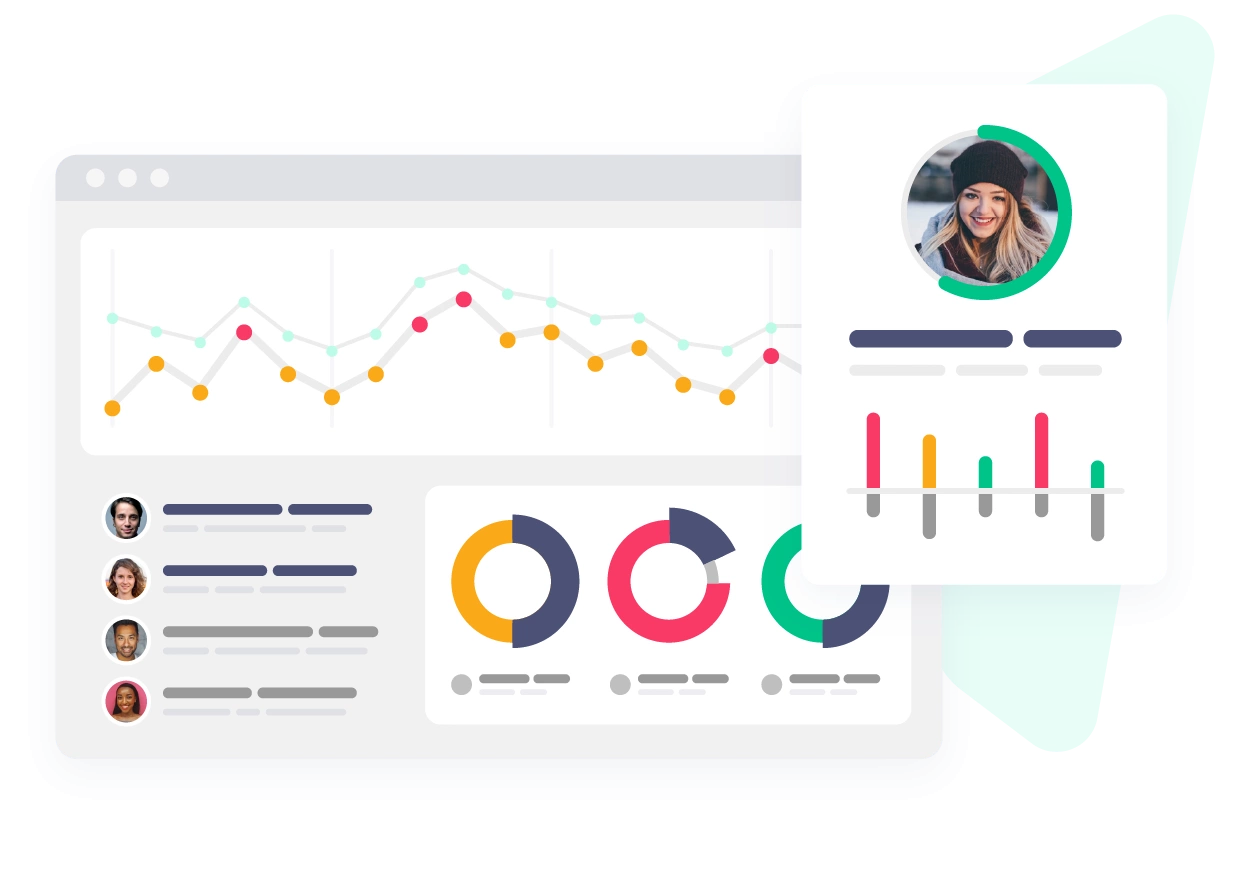Table of Contents
What is a personality assessment?
Quite literally, personality assessments are a way for employers to measure certain parts of their candidates’ personalities. Unlike aptitude tests, which often involve a certain element of ‘right’ and ‘wrong’, a personality test for recruitment will focus on understanding who you are as a person, and how you naturally act.
What are the different types of personality assessment?
Broadly, there are two different types of personality assessment:
Self-report: These personality assessments present a set of statements (sometimes hundreds) and ask candidates how well they feel each statement applies to them. An example might be “I bounce back quickly from adversity”. While these were historically completed on paper, they’re now usually online.
Behaviour-based: With behaviour-based assessments, there are no statements. Instead, they use online tasks to measure candidates’ unique behaviour and personality in action. This means employers can get an accurate insight, without requiring a candidate to really know their own personality.
Want to read more about psychometrics?
There's a lot more information about psychometrics than we can share in this blog post! If you want to learn more, check out our full guide below.
Psychometric Testing Guide
How do assessments measure personality?
This depends on which of the two personality assessment examples you’re using:
Self-report: Theoretically at least, each statement in a self-report, question-answer assessment probes different aspects of a candidate’s personality. This is generally aligned to the OCEAN model, which splits our personality up into five areas – openness to experience, conscientiousness, extroversion, agreeableness, and neuroticism. Once a candidate’s completed all the statements (there can be hundreds, so it may take a while!), the results are pulled together to form a “profile” of their personality.
Behaviour-based: This type of personality test in recruitment and selection ask no questions, so the data gathered is completely different. Rather than self-reported answers, these track thousands of tiny decisions – taps, clicks, swipes, and more. While these mean nothing on their own, with statistical models it’s possible to unpick the relationships between them, and extract the signals that ladder up to behaviour, personality, and job performance. From thousands of tiny taps, you can paint a picture of candidates’ truest potential.
It’s worth noting that the tasks used in these assessments are almost always rooted in decades of neuroscientific theory. Because brains are complicated, and all that.
Are you an employer?
Find out how Arctic Shores can help you. Get in touch today to streamline your hiring - improving cost efficiency, reducing time to hire and eliminating bias.
Book a demo
How are personality assessments used by employers?
In general, employers measure personality to see whether a candidate is a good fit for a specific role, the company’s culture, or perhaps even both. But, specifically, there are three common applications of personality assessments:
High volume/early careers screening
Because early careers candidates will often have little experience to go on, their CVs generally won’t tell you much. So employers are increasingly measuring their unique behaviour and natural strengths instead.
Did you know?
The right personality assessment can help employers counter natural bias, by giving them the objective insight they won’t find on the CV. This way, they can screen through lots of applications in the early stages of their process. Quickly and fairly.
Informing the right choice
Sometimes it’s not about screening, necessarily, but about getting a deeper understanding of a smaller number of individuals. Take leadership hiring, for example.
In this case, a personality assessment can give employers another objective data point, to be combined with other insight from interviews, CVs, referrals etc. So that they can paint the richest possible picture of every candidate. And, of course, make the right hire.
Supporting peak performance
Sometimes it’s not about hiring at all. It’s about what comes next. If employers know candidates’ innate personality, they can better tailor their onboarding, learning and development plan – all to get them up to speed fast, and support their long-term growth.
Take, for example, remote working. If a candidate’s personality assessment has shown they’re a little low on resilience, and will likely need regular support from their line manager when working from home, that’s something worth knowing. In this way, it’s easy to see how a window into an individual’s personality can improve that onboarding experience.
Free Playbook: CV-less Hiring
Learn to navigate the skills crisis by looking beyond the CV. Get access to our free in-depth guide on rethinking employment practices, scrapping the CV, and how to implement hiring for potential in your company.
Download the playbook
Personality assessments from Arctic Shores
At Arctic Shores, we do personality assessments with a bit of a twist. They ask no questions, instead capturing your candidates’ unique behaviour and natural strengths with engaging, intuitive tasks.
Completed online, our assessment measures 34 traits – including creativity, resilience and learning agility – through a series of up to eight tasks. And, through these tasks, we can measure your candidates’ fit for your role, your culture, or even both. All at the same time.
So, time to start seeing more in people? Let’s look beyond the CV, together. Download our Playbook for CV-less hiring to find out how hiring for potential can transform your hiring process. Get in touch to get started.
Are you a candidate? Learn more here.
Personality Assessment FAQs
Personality assessments can be quite a lot to try and understand at once! If you're struggling to take it all in, then take a look at our answers to these frequently asked questions on the topic below.
> What is the purpose of a personality assessment in recruitment?
Personality assessments help employers understand how candidates naturally think and behave, rather than what they know. They’re used to assess role fit, cultural alignment, and even how best to support someone’s onboarding and long-term development.
> What are the main types of personality assessments?
There are two main types: self-report assessments, which rely on candidates rating their agreement with statements, and behaviour-based assessments, which use online tasks to measure natural responses and patterns. The latter gives deeper, more objective insight into personality traits.
> How are behaviour-based personality assessments different?
Unlike self-report tests, behaviour-based assessments don’t ask questions. Instead, they track real-time actions like clicks and swipes during engaging tasks. These interactions are then analysed to reveal natural strengths, behaviours, and traits, offering a more accurate view of candidate potential.
Want to learn more about our assessment?
Or, if you’d like to learn a bit more about our assessment at Arctic Shores, just let us know here. We’ll get back to you pronto.
In the meantime, download our Playbook for CV-less hiring to find out how hiring for potential can transform your hiring process.
Start your Skills-based hiring journey today
Get in touch to understand how our task-based assessment has helped 150+ leading employers future-proof their hiring process.
Contact usRead Next
Sign up for our newsletter to be notified as soon as our next research piece drops.
Join over 2,000 disruptive TA leaders and get insights into the latest trends turning TA on its head in your inbox, every week
Sign up for our newsletter to be notified as soon as our next research piece drops.
Join over 2,000 disruptive TA leaders and get insights into the latest trends turning TA on its head in your inbox, every week


